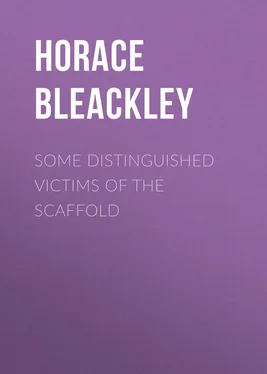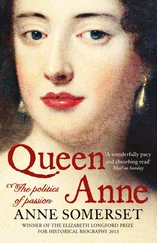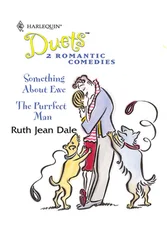Horace Bleackley - Some Distinguished Victims of the Scaffold
Здесь есть возможность читать онлайн «Horace Bleackley - Some Distinguished Victims of the Scaffold» — ознакомительный отрывок электронной книги совершенно бесплатно, а после прочтения отрывка купить полную версию. В некоторых случаях можно слушать аудио, скачать через торрент в формате fb2 и присутствует краткое содержание. Жанр: foreign_antique, foreign_prose, на английском языке. Описание произведения, (предисловие) а так же отзывы посетителей доступны на портале библиотеки ЛибКат.
- Название:Some Distinguished Victims of the Scaffold
- Автор:
- Жанр:
- Год:неизвестен
- ISBN:нет данных
- Рейтинг книги:5 / 5. Голосов: 1
-
Избранное:Добавить в избранное
- Отзывы:
-
Ваша оценка:
- 100
- 1
- 2
- 3
- 4
- 5
Some Distinguished Victims of the Scaffold: краткое содержание, описание и аннотация
Предлагаем к чтению аннотацию, описание, краткое содержание или предисловие (зависит от того, что написал сам автор книги «Some Distinguished Victims of the Scaffold»). Если вы не нашли необходимую информацию о книге — напишите в комментариях, мы постараемся отыскать её.
Some Distinguished Victims of the Scaffold — читать онлайн ознакомительный отрывок
Ниже представлен текст книги, разбитый по страницам. Система сохранения места последней прочитанной страницы, позволяет с удобством читать онлайн бесплатно книгу «Some Distinguished Victims of the Scaffold», без необходимости каждый раз заново искать на чём Вы остановились. Поставьте закладку, и сможете в любой момент перейти на страницу, на которой закончили чтение.
Интервал:
Закладка:
Owing to the social position of the accused, and the enormity of her offence, the eyes of the whole nation were turned to the tragedy at Henley. Gossips of the day, such as Horace Walpole and Tate Wilkinson, tell us that the story of Miss Blandy was upon every lip. In spite of the noble irony of ‘Drawcansir’ Fielding, journalists and pamphleteers had no scruple in referring to the prisoner as a wicked murderess or a cruel parricide. Yet the case of Henry Coleman, who, during the August of this year, had been proved innocent of a crime for which he had suffered death, should have warned the public against hasty assumption. For six months the dark woman was waiting for her trial. Although it was the custom for a jailor to make an exhibition of his captive to anyone who would pay the entrance fee, nobody was allowed to see Miss Blandy without her consent. Two comfortable rooms were set apart for her in the keeper’s house; she was free to take walks in the garden, and to have her own maid. At last, when stories of a premeditated escape were noised abroad, Secretary Newcastle, in a usual state of fuss, fearing that she might repeat the achievement of Queen Maud, gave orders that she must be put in irons. At first Thomas Newell, who had succeeded her father as town clerk of Henley four years previously, was employed in her defence, but he offended her by speaking of Cranstoun as “a mean-looking, little, ugly fellow,” and so she dismissed him in favour of Mr Rives, a lawyer from Woodstock. Her old invincible courage had returned, and only once – when she learnt the paltry value of her father’s fortune – did she lose self-possession. For a dismal echo must have come back in the mocking words, “When the old man is in his grave you shall be happy.”
At last the magistrates – Lords Cadogan and ‘New-Style’ Macclesfield, who had undertaken duties which in later days Mr Newton or Mr Montagu Williams would have shared with Scotland Yard – finish their much-praised detective work, and on Tuesday, the 3rd of March 1752, Mary Blandy is brought to the bar. The Court meets in the divinity school, since the town-hall is in the hands of the British workman, and because the University, so ‘Sir Alexander Drawcansir’ tells his readers, will not allow the use of the Sheldonian Theatre. Why the most beautiful room in Oxford should be deemed a fitter place of desecration than the archbishop’s monstrosity is not made clear. An accident delays the trial – this second ‘Great Oyer of Poisoning!’ There is a small stone or other obstruction in the lock – can some sentimental, wry-brained undergraduate think to aid the gallows-heroine of his fancy? – and while it is being removed, Judges Legge and Smythe return to their lodgings.
At eight o’clock, Mary Blandy, calm and stately, stands beneath the graceful fretted ceiling, facing the tribunal. From wall to wall an eager crowd has filled the long chamber, surging through the doorway, flowing in at the open windows, jostling even against the prisoner. A chair is placed for her in case of fatigue, and her maid is by her side. A plain and neat dress befits her serene manner – a black bombazine short sacque (the garb of mourning), white linen kerchief, and a thick crape shade and hood. From the memory of those present her countenance can never fade. A broad high forehead, above which her thick jet hair is smoothed under a cap; a pair of fine black sparkling eyes; the colouring almost of a gipsy; cheeks with scarce a curve; mouth full, but showing no softness; nose large, straight, determined – it is the face of one of those rare women who command, not the love, but the obedience of mankind. Still it is intelligent, not unseductive, compelling; and yet, in spite of the deep, flashing eyes, without radiance of soul – the face of a sombre-hearted woman.
Black, indeed, is the indictment that Bathurst, a venerable young barrister who represents the Crown, unfolds against her, but only once during his burst of carefully-matured eloquence is there any change in her serenity. When the future Lord Chancellor declares that the base Cranstoun “had fallen in love, not with her, but with her fortune,” the woman’s instinct cannot tolerate the reflection upon her charms, and she darts a look of bitterest scorn upon the speaker. And only once does she show a trace of human softness. When her godmother, old Mrs Mountenay, is leaving the witness-box, she repeats the curtsey which the prisoner had previously disregarded, and then, in an impulse of pity, presses forward, and, seizing Miss Blandy’s hand, exclaims, “God bless you!” At last, and for the first time, the tears gather in the accused woman’s eyes.
Many abuses, handed down from a previous century, still render barbarous the procedure of criminal trials. The case is hurried over in one day; counsel for the prisoner can only examine witnesses, but not address the jury; the prosecution is accustomed to put forward evidence of which the defence has been kept in ignorance. Yet no injustice is done to Mary Blandy. Thirteen hours is enough to tear the veil from her sombre heart; the tongue of Nestor would fail to show her innocent; of all that her accusers can say of her she is well aware. Never for one moment is the issue in doubt. What can her scoffing, sceptic age, with its cold-blooded sentiment and tame romance, think of a credulity that employed a love-potion in the guise of affection but with the result of death! How is it possible to judge a daughter who persisted in her black art, although its dire effects were visible, not once, but many times! Her defence, when at last it comes, is spoken bravely, but better had been left unsaid.
“My lords,” she begins, “it is morally impossible for me to lay down the hardships I have received. I have been aspersed in my character. In the first place, it has been said that I have spoke ill of my father; that I have cursed him and wished him at hell; which is extremely false. Sometimes little family affairs have happened, and he did not speak to me so kind as I could wish. I own I am passionate, my lords, and in those passions some hasty expressions might have dropt. But great care has been taken to recollect every word I have spoken at different times, and to apply them to such particular purposes as my enemies knew would do me the greatest injury. These are hardships, my lords, extreme hardships! – such as you yourselves must allow to be so. It was said, too, my lords, that I endeavoured to make my escape. Your lordships will judge from the difficulties I laboured under. I had lost my father – I was accused of being his murderer – I was not permitted to go near him – I was forsaken by my friends – affronted by the mob – insulted by my servants. Although I begged to have the liberty to listen at the door where he died, I was not allowed it. My keys were taken from me, my shoe-buckles and garters too – to prevent me from making away with myself, as though I was the most abandoned creature. What could I do, my lords? I verily believe I was out of my senses. When I heard my father was dead and the door open, I ran out of the house, and over the bridge, and had nothing on but a half sack and petticoat, without a hoop, my petticoats hanging about me. The mob gathered about me. Was this a condition, my lords, to make my escape in? A good woman beyond the bridge, seeing me in this distress, desired me to walk in till the mob was dispersed. The town sergeant was there. I begged he would take me under his protection to have me home. The woman said it was not proper, the mob was very great, and that I had better stay a little. When I came home they said I used the constable ill. I was locked up for fifteen hours, with only an old servant of the family to attend me. I was not allowed a maid for the common decencies of my sex. I was sent to gaol, and was in hopes, there, at least, this usage would have ended, but was told it was reported I was frequently drunk – that I attempted to make my escape – that I never attended the chapel. A more abstemious woman, my lords, I believe, does not live.
Читать дальшеИнтервал:
Закладка:
Похожие книги на «Some Distinguished Victims of the Scaffold»
Представляем Вашему вниманию похожие книги на «Some Distinguished Victims of the Scaffold» списком для выбора. Мы отобрали схожую по названию и смыслу литературу в надежде предоставить читателям больше вариантов отыскать новые, интересные, ещё непрочитанные произведения.
Обсуждение, отзывы о книге «Some Distinguished Victims of the Scaffold» и просто собственные мнения читателей. Оставьте ваши комментарии, напишите, что Вы думаете о произведении, его смысле или главных героях. Укажите что конкретно понравилось, а что нет, и почему Вы так считаете.












